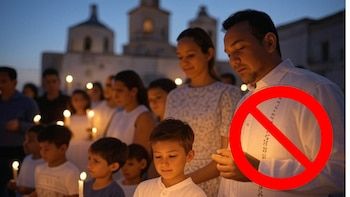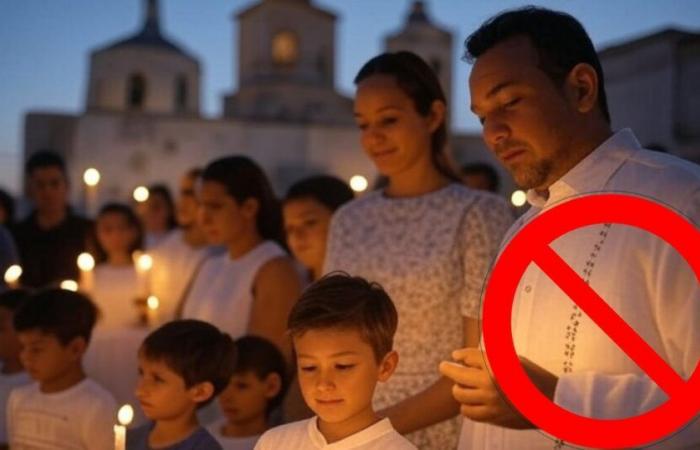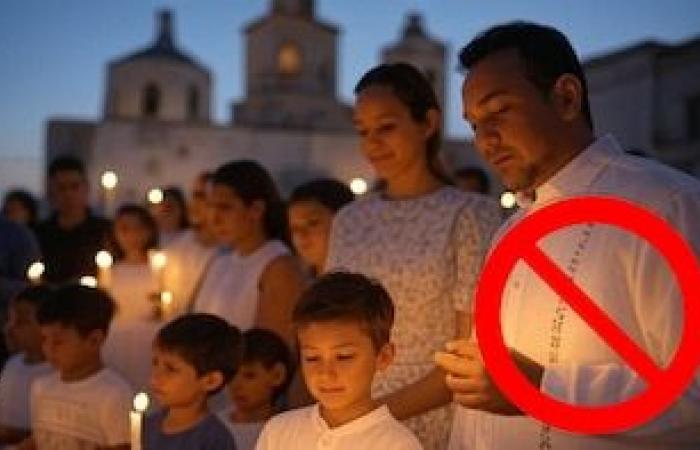
While millions of people in Latin America fervently live religious processions, traditional rituals and holidays extended by Easter weekthere is a country in the region where this date has no religious character nor is it officially recognized by the state. Instead, this South American nation commemorates the call Tourism Weeka secular denomination that dates back to a historic reform promoted more than a century ago.
This is Uruguay, which is considered one of the most lay countries of Latin America. This identity was consolidated at the beginning of the 20th century, during the former president’s government José Batlle y Ordóñezwho promoted a series of reforms to completely separate the state church. As part of that process, religious festivities were eliminated from the official calendar, including Holy Week, which was called Tourism Week. Similarly, Christmas was renowned as the Family Day.
Although the holidays remain in force And many families take the opportunity to travel or rest, this week’s state approach has no relationship with religious celebrations. Even so, the Catholic Church in Uruguay does perform its liturgical activities for those who wish to participate, but without official support or institutional coverage.

Unlike Uruguay, the most Latin American countries They keep alive the Catholic tradition during Holy Week, combining religious devotion with popular cultural expressions and customs.
In Perufor example, cities such as Ayacucho, Cusco and Junín stand out for their processions, floral carpets and staging of the Passion of Christ. In Ayacucho, celebrations are held for eight days, with a mixture of religious fervor and popular feast that attracts both believers and tourists.
In MexicoHoly Week is one of the most important celebrations of the year. The streets are filled with processions, via crucis and live representations of the crucifixion, being one of the best known that of Iztapalapa, in Mexico City. Thousands of people participate or attend as spectators.

Colombiameanwhile, stands out for celebrations in cities such as Popayán and Mompox. Popayán is known for having one of the oldest and most solemn processional traditions of the continent, recognized even by UNESCO as Intangible Cultural Heritage of Humanity.
In GuatemalaHoly Week is synonymous with majesty: Colored sawdust carpets cover the streets of Antigua, where thousands of faithful carry heavy religious steps to the rhythm of funeral marches. It is one of the most visited destinations in the region during this time.
Brazildespite its majority Catholic, it combines religious celebrations with Afro -Robrasileñas cultural expressions. In cities such as Ouro Preto or Salvador de Bahia, processions, masses and liturgical acts accompanied by music and color are carried out.

Even in countries with the lowest percentage of Catholics, such as Chile o ArgentinaHoly Week still has an important place in the national calendar, with holidays and traditions such as fasting, red meat abstinence and visits to religious temples.
Although Uruguay is the only country in Latin America that does not officially recognize Holy Week, in other parts of the world there are also similar cases. In countries like China, Japan, Saudi Arabia, Israel, North Korea o Moroccothis holiday is not part of the official calendar for cultural or religious reasons, since other beliefs such as Islam, Buddhism, Judaism or State Atheism predominate.
Despite these exceptions, the Easter week It remains one of the most widespread and significant celebrations of Christianity, especially in Latin America, where each country prints its own identity through faith, art, music and tradition.
The economic impact of the Tourism Week In Uruguay, although it is not directly related to religious celebrations, it has great relevance due to the rise of tourist activity during those days. During this week, which coincides with what would be the Easter week In other countries, many Uruguayans take advantage of the holiday to travel within the country, which generates an important flow of national and foreign tourists.
One of the most benefited sectors is the internal tourismsince families and groups of friends tend to move towards tourist destinations within Uruguay. The main cities and coastal areas, such as Punta del Este, Montevideoy Colony of the sacramentThey usually see a significant increase in hotel occupancy, restoration and local commerce. People who travel also usually make purchases, which contributes to the dynamism of the local economy.
In addition, during tourism, various recreational and cultural activitiesthat promote the entertainment sector, including musical events, festivals and exhibitions, which attracts tourists even more. This translates into an increase in demand in transportation, Accommodations y gastronomy.
Although there is no exact calculation of how much tourism week represents for the Gross Domestic Product (GDP) of Uruguay, it is evident that this period represents an opportunity for business related to tourism and services. In general, it contributes to the Economic dynamization of many areas of the country, especially in sectors dependent on the high tourist season.
The Tourism Week in Uruguay He has experienced remarkable evolution over the years, especially in terms of recreational and cultural activities. This period, which officially replaced the traditional Easter week In 1919, it was characterized by its secular approach, a decision promoted by the former president’s government José Batlle y Ordóñez as part of the reforms to separate the Church from the State. This transformation not only modified the nature of national festivities, but also allowed the Tourism Week It became an ideal occasion to promote internal tourism and cultural activities of diverse type.
Over the years, recreational and cultural activities have grown significantly, with a growing approach to attract both national and international tourists. During this time, it is common to see an increase in musical events, festivals, artistic exhibitions and other cultural manifestations that are organized throughout the country. Coastal cities like Punta del Este, Montevideo y Colony of the sacrament They become the main tourist destinations, with an increase in hotel occupancy and local commercial activity. This rise in tourism has had a positive impact on sectors such as gastronomy, transport and shops, which energizes the local economy, particularly in areas dependent on the high season.
In addition to cultural events, the Tourism Week has become a platform to strengthen national identity, offering various recreational alternatives that are not linked to any religious holiday. This approach has attracted a greater variety of tourists, who find in Uruguay a destination that offers not only natural beauty and historical heritage, but also a vibrant and diverse cultural agenda.







